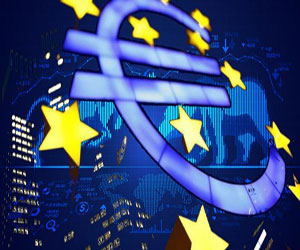The mantra surrounding EU economic governance is well known. The asymmetry between economic and monetary policy is one of the structural flaws of the EU Treaties architecture, although it must be said that the EU has been able to live with it quite well in the last few years. Since the never ending Euro area crisis, some of the powers that were either not temporarily available (i.e. economic support to EU member states in financial distress before the amendment of Art. 136 TFEU) or that were not politically or legally convenient to be placed within the Treaty framework (i.e. the role played by the EU institutions in the conclusion of the ESM memoranda of understanding to provide the above mentioned economic support) were promptly externalised, as happened with the Treaty on Stability, Governance and Coordination as well as with the European Stability Mechanism. This experience taught an invaluable lesson to the EU institutions, but most importantly to the Member States, which were supporting the externalisation of tasks and powers outside the Treaty framework. The implementation of economic and financial support that was conditional to budgetary cuts was not only detrimental to the wealth of the economies but also to the democratic principle underpinning the legal systems of the Member States and of the EU as a whole. In the future, economic governance at a EU level should be reformed to avoid a similar situation repeating itself.
The Conference of the Future of Europe aimed, before the strike of the pandemic crisis, to provide a forum for discussion for the reform of the EU, including the issue of economic governance. One of the reasons for opening this debate was, of course, the opportunity to reform the imbalance between the exclusive monetary policy (Art. 3 TFEU) and the coordination of economic policies of the EU Member States (Art. 5 TFEU). Although, of course, remarkable results have been reached also within the realm of competences in the field of economic and budgetary coordination (see, although with different nuances, the European Semester), it is undoubtable that an EU budget in the strict sense does not exist, as long as the EU is almost exclusively reliant on the contribution of the EU Member States. The need for an EU, or at least for an Eurozone, budget was raised by Germany and France in the Mesberg declaration, but so far nothing remarkable happened.
After the hit of the pandemic, the EU Member States were able to put together a common response in the form of the 750 billion Recovery and Resilience Facility, a fund that should provide resources to the EU Member States based on the respective national Recovery Plans. The income necessary to cover these new expenses came from a new conferral of competences to the EU, in the new Own Resources Decision, where the European Commission was allowed to borrow the necessary money (up to 750 billions) in the markets. This is undoubtedly a step further, that allows the EU to fill a small part of the gap between economic and monetary policies. But still a lot remains to be done.
The EU institutions came up with the idea of a forum for discussion to close the distance between EU citizens and institutions at least since 2019. The Joint Declaration on the Conference on the Future of Europe, although it has a broader scope than simply economic governance, aims to build “an economy that leaves no one behind” and “an economy that works for people”. To comply with this clearly programmatic objective, the Joint Presidency reserved to economic governance a specific topic of the discussion of the Conference, “A stronger economy, social justice and jobs”. Under this forum for discussion, citizens who have registered on the website of the Conference will have the possibility to debate, write a post or a comment, on any economic-related topic, including of course the debate over EU economic governance and EU competences. Conference participants will also have the possibility of organizing events, either online or offline, where the topic (in this case economy) is analysed. How the outcome of this discussion on an economy that works for the people will be relevant for the future debate over the reform of EU economic governance remains still unclear. This is surely a remarkable attempt of the EU institutions to fill a gap in the participation and cooperation of the general public in the EU democratic process. However, how will the participation of the public to the process be assessed? Will their participation be based on quantitative (i.e. the number of people actually participating) or qualitative (i.e. the quality of the ideas proposed) criteria? There is a timeline of the Conference that suggests that a more structured discussion between four European Citizens Panels, formed by citizens randomly selected and dealing with the topics of the Multilingual Digital platform (including economic governance), will take place from September 2021 onwards. The representatives of each Panel will then convene, together with representatives of the EU institutions and of national Parliaments, in the Conference Plenary, where a more structured discussion will take place. Then, the results of such a discussion will be collected in a joint report of the Joint Presidency of the Conference by end of May 2022. On the basis of this report, the EU institutions will have to take action within the scope of their competences. In practical terms, if the discussion on the topic during the events will evolve around economic governance and around the allocation of EU competences, there is a good possibility that a part of the final report of the Conference will be devoted to economic governance.
There is, however, no legal obligation for EU institutions to follow the advice of the report of the Conference, although of course it would be politically difficult to explain why such a complex hybrid direct democracy instrument was arranged if none of its advice was eventually followed through. The Conference on the Future of Europe is accordingly the perfect occasion to open the debate over the reform of the EU Treaties, which is of course much broader but that includes economic governance as a fundamental part. Eventually, what can be said about the Conference is that it has the potential of fostering a renewed connection between EU citizens and EU institutions if it translates into practical the advice on how to reform the EU. Otherwise, it will be just another – remarkable – attempt.






















